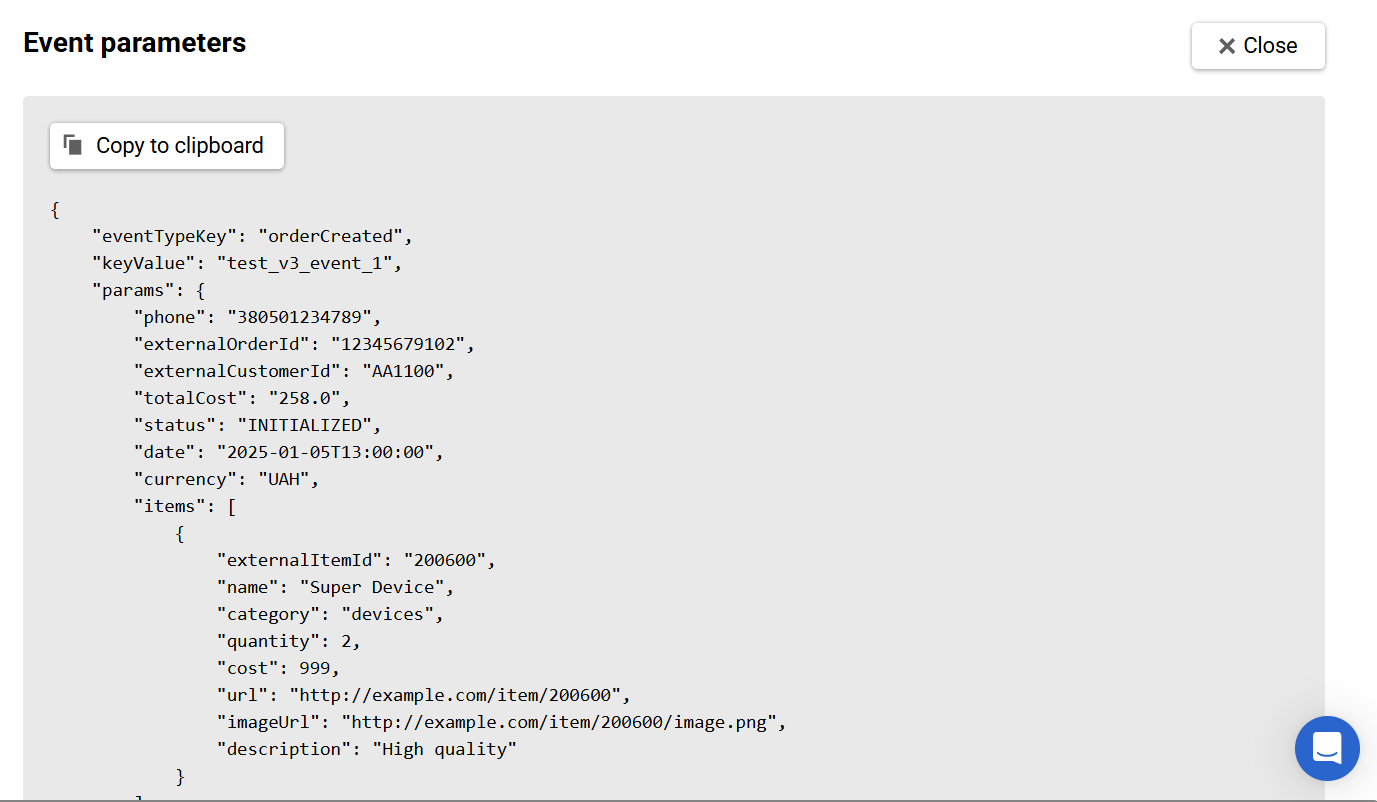Sending Custom Events
You can send custom events to Reteno simultaneously via
- SDK (frontend events),
- Backend API (Server to Server events)
- Integration with the Amplitude platform
Let’s consider sending custom events in detail.
Creating Event Plan
Proper event planning lays the groundwork for successful marketing campaigns. Therefore, we recommend first identifying all the events you need to track and then configuring their sending via SDK and API.
API & SDK Event Examples
Events sent via SDK include data about user’s in-app actions. Examples:
LessonStarted/CompletedGoalSet/AchievedHealthMetricsRecordedSleepTrackedSearchPerformed
Events sent via Backend API typically involve sensitive data or require server-side validation and processing. Examples:
AccountCreatedUserUpdated(changes in user profile information that are managed server-side)SubscriptionStarted/Renewed/Updated/CanceledPaymentCompleted/FailedReferralInviteAccepted
Sending Custom Events via SDK
Follow the steps below to send custom events via SDK:
-
Integrate the SDK:
- Connect your mobile app to Reteno.
- Set up the SDK access key.
- Add the SDK for the platforms you use to your mobile app.
-
Create Event Payloads:
The SDK will handle the communication with Reteno and send the tracked events in real-time.
NoteFollow the link to see the list of system SDK events, which tracking you can turn on or off.
Sending Custom Events via Backend API
Follow the steps below to use the Backend API for server-side events:
-
Set Up API Access:
- Obtain the API key from Reteno.
- Configure authentication mechanisms in your backend system.
-
Create Event Payloads:
- Use the Generate event API method to send custom events in the format described by the link.
-
Send Events via API:
- Use an HTTP client (e.g., Axios, cURL, Postman) to send
POSTrequests to the https://api.reteno.com/api/v3/event endpoint.
- Use an HTTP client (e.g., Axios, cURL, Postman) to send
To see transferred events, go to the Automation → Event history tab, click on the event, and verify that the parameters contain data you passed in.

Sending Custom Events from Amplitude
If you are using Amplitude for event analytics, you can integrate this platform with Reteno to avoid manual event tracking configuration. The integration process does not require the involvement of developers and is completed in a few clicks.
Follow the link to see details >
Managing Events
-
Keep Consistency:
- Implement checks to ensure that event data sent from the SDK and the Backend API are consistent and accurate.
-
Monitor and Debug:
- Use Android and iOS debug modes to ensure all SDK events and user properties are logged correctly.
- Validate events and their parameters.
- Set up alerts for failed event submissions.
- Track statistical indicators.
By following these steps, you can effectively manage sending events from both the frontend (via SDK) and the backend (via API). This ensures comprehensive tracking of custom events, enabling more accurate analysis and personalized marketing campaigns.
Updated 7 months ago
